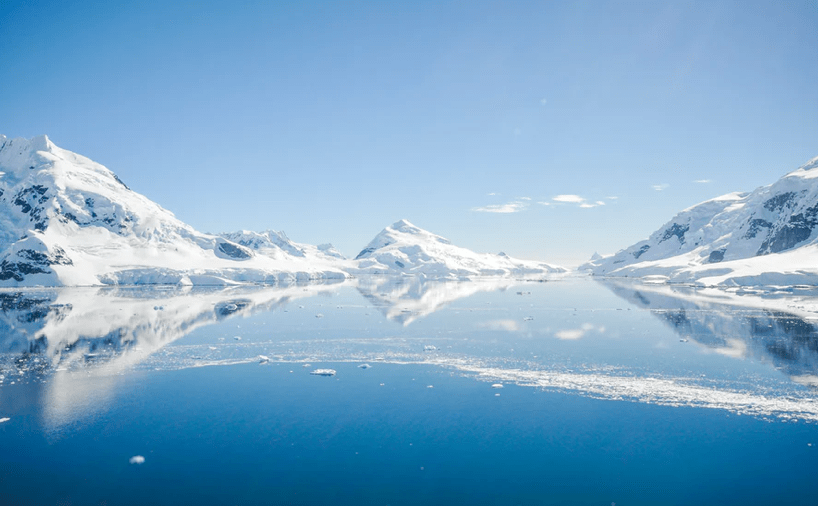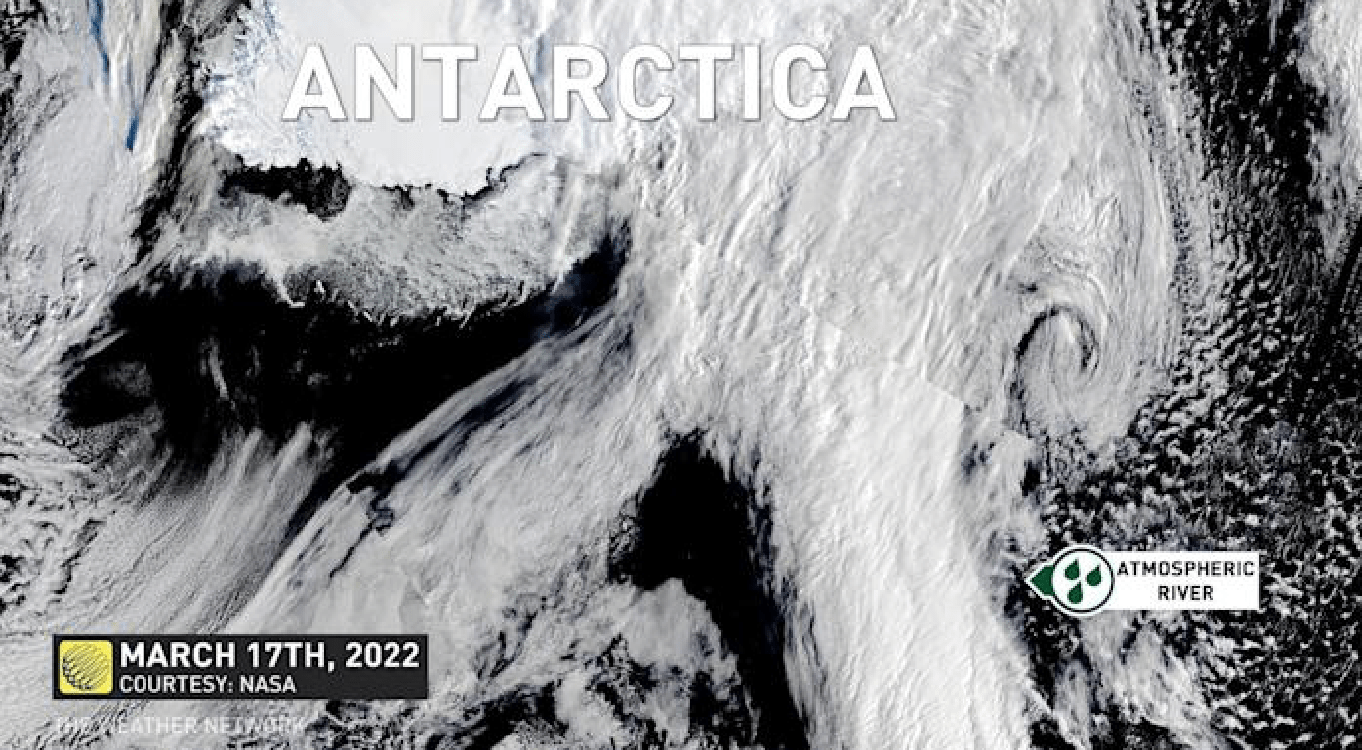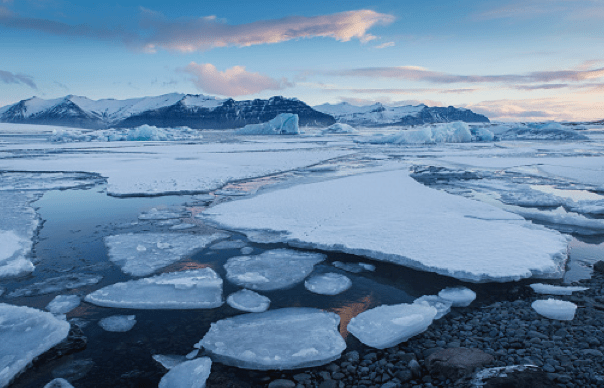
Like many others this year, Antarctica, the coldest place on Earth, is experiencing a heatwave. It’s entering winter with record-breaking high temps.
Antarctica has already started transitioning into its coldest months and darkest months. Temperatures usually begin dropping towards the end of the Southern Summer, but the continent is breaking records this March. Known as polar nights, daylight is minimal. This time of year, nights get longer, and temperatures drop. Or so they usually do.
March marks the beginning of winter; 30 minutes of sunlight are lost each day as temps drop, and it begins to transition into winter. At the research base Dome C, in Concordia Antarctic, located 9,800 feet above sea level, recorded temperatures soared to -11 degrees Celsius (12 degrees Fahrenheit) on March 17th. This is extremely high as the average high this time of year is -50 degrees Celsius (-58 degrees Fahrenheit).
For halfway through March, this recorded high is unfathomable. Especially as half of March is in the rearview mirror. In the winter of 2021, Antarctica experienced the second coldest season ever recorded. The continent endured an average of -69 degrees Celsius (-92 degrees Fahrenheit) a day. Compared to last year, these temps are toasty.
A usually dry climate receiving large amounts of moisture in the air causes warming on the ice’s surface. According to NASA, a combination of a warm inland well and an atmospheric river is to blame. It’s a perfect combination pushing moisture out across the sea ice.

Additionally, these record high temperatures are following record-breaking calculations of the continent’s sea ice. According to the National Snow and Ice Data Center, Antarctica’s sea ice fell to under two million square kilometers in February. This data hasn’t resembled since 1979.
After much of the North has faced a dry winter season, these stats don’t look good for the Southern Winter. This year has proven to be unprecedented and continues to prove that moving into the next season.
